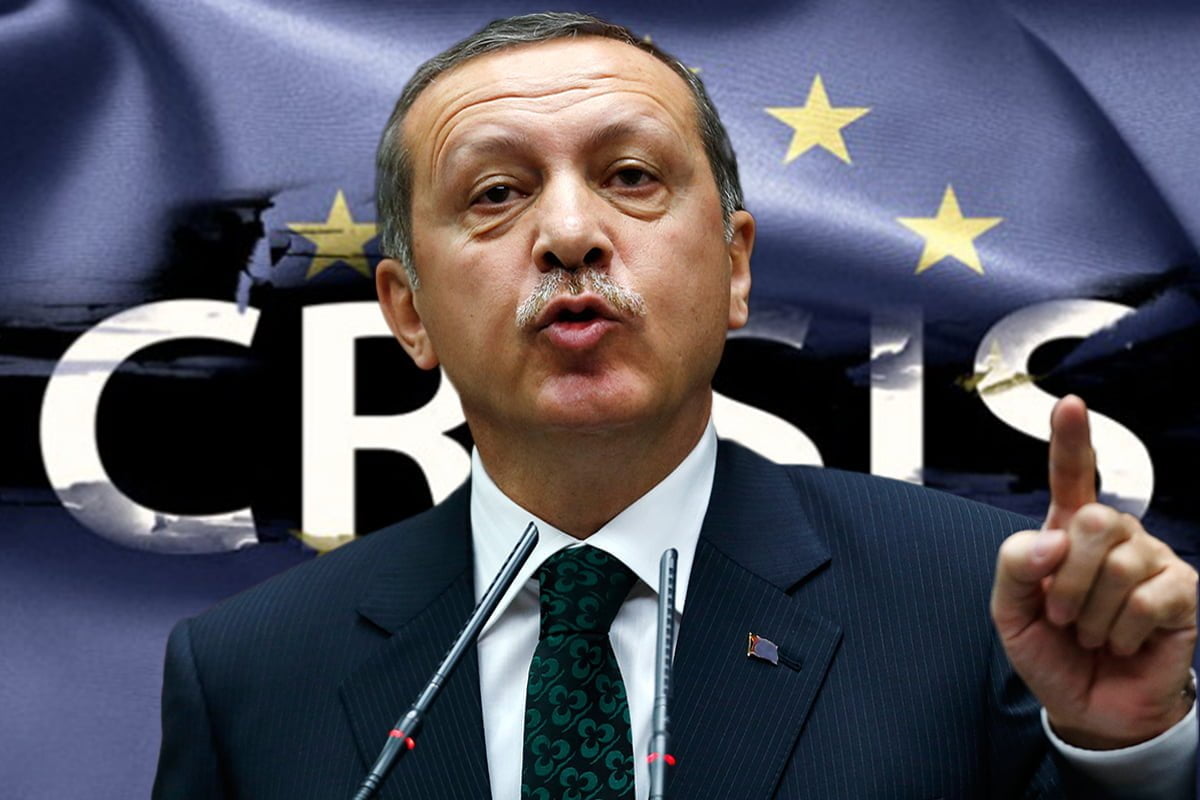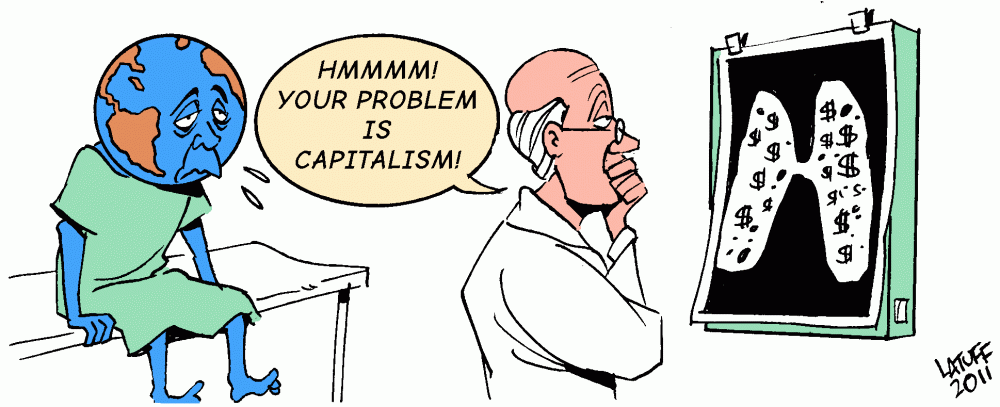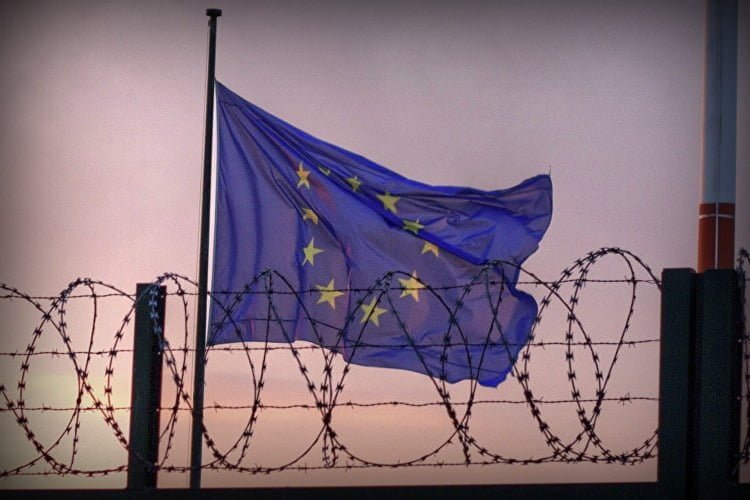“We don’t have a say in the referendum, but the politicians and press talk about us as if we are an underclass who cannot read – and it’s terrifying.” This is the understandable sentiment of the thousands of migrant workers in Britain who are being demonised and blamed for all the ills in society; used as pawns by politicians on both sides of the EU referendum. We say: End all borders! For a Socialist United States of Europe!
“We don’t have a say in the referendum, but the politicians and press talk about us as if we are an underclass who cannot read – and it’s terrifying”
A Polish journalist based in London, Jacob Krupa expresses feelings shared by many EU migrants in the run up to June’s Brexit referendum. Three million non-British EU nationals currently live in the UK. The majority of this population comes from the “A8” – Eastern and Central European countries that have joined since 2004 – and are mainly economic migrants escaping the economic crisis and unemployment in their countries following the collapse of the Soviet Union in the 1990s. Also, since the European crisis hit, increasing numbers of Southern European migrants from Greece, Spain, Portugal, and Italy have moved here for similar reasons.
The subject of immigration has dominated the debate on the EU, and never for a nice reason. Migrants have been demonised and used as pawns by politicians on both sides of the argument. The Out camp, cheered on by their chauvinistic base in the Tory and UKIP rank and file, present Brexit as a chance to take a tough stance on immigration. The Tory leadership and Labour “moderates” pathetically grovel to these reactionaries and insist that they are just as xenophobic as the Out camp. Meanwhile migrant workers grin and bear their difficult situations whilst a handful of suited morons juggle with their fate in a referendum that they aren’t even allowed to vote in.
Fear and resentment
“EU Law Analysis”, an EU law information service, gives three potential options for this population in the event of a Brexit. The first is that Britain becomes part of the European Economic Area, negotiating a similar deal to that of Switzerland which permits workers, students, self-employed and economically self-sufficient migrants to live here. However the anti-immigration Out camp would be unlikely to accept such a deal in the event of their victory.
The second option considered individual free movement agreements with certain countries. Those from the more “desirable” Western European countries would be allowed, but not the “swarms” from Eastern Europe. This option assumes a bargaining power that Britain does not have and is also unlikely.
The third scenario is that instead of sharing much of the same legal rights as British born workers they would share the same rights as migrants and refugees from outside the EU. This would mean the introduction of work permits and linking of their residency status to marriage, family connections, skillset, etc. In theory this could lead to the deportation of citizens who don’t meet current conditions for permanent residence.
It is likely that agreement of the position of EU migrants already living here will occur in the event of Brexit, though this would likely be a longwinded process – but the mere threat of it is enough to add a significant amount of stress to an already disadvantaged layer of people. It is not difficult to understand the growing fear and resentment amongst migrant workers.
Since they share a lot of the same legal rights as UK citizens there has never been much of a desire for EU migrants to obtain British citizenship. However, there are signs that this is changing. Red Squirrel Publishing, who produce textbooks for Citizenship tests have reported that their sales have more than quadrupled since the referendum date was announced. Payne Hicks Solicitors have reported a dramatic increase into enquiries from EU nationals over the potential Brexit. The Daily Mail reported with their usual chauvinistic emphasis that citizenship applications from Poles shot up by 40% whilst applications from Romanians and Bulgarians rose by 42% at the end of last year.
The lack of clarity on a post-Brexit situation for migrants stems from the fact that the ruling class and its stooges in government are on an ever narrowing ledge when it comes to this topic and actually don’t know what will happen themselves. On one side of the ledge, the ruling class clearly needs cheap migrant labour. On the other side, it also relies on the tensions and xenophobic feelings that have spawned the campaign for Brexit to keep workers divided, along with immigration controls to limit rights and keep the workers cheap and obedient.
Exploitation
 The points based system advertised so much by xenophobes, which favours skilled workers, makes no sense for British capitalism. The majority of migrant workers are in low paid, low-skilled jobs (including many who are qualified for skilled jobs). At the end of last year when Polish organisations in Britain threatened a walk out, the Telegraph wrote: “More than half a million Poles now work in the UK and any concerted action could cause widespread disruption to businesses and services across the country, with the construction, food and health care sectors in particular hit hard.” This exposes how reliant the British ruling class is on this layer of workers. A mass repatriation of migrants in the near future is unlikely regardless of the vote. The government is unable to deal with the economic and social consequences of such a thing.
The points based system advertised so much by xenophobes, which favours skilled workers, makes no sense for British capitalism. The majority of migrant workers are in low paid, low-skilled jobs (including many who are qualified for skilled jobs). At the end of last year when Polish organisations in Britain threatened a walk out, the Telegraph wrote: “More than half a million Poles now work in the UK and any concerted action could cause widespread disruption to businesses and services across the country, with the construction, food and health care sectors in particular hit hard.” This exposes how reliant the British ruling class is on this layer of workers. A mass repatriation of migrants in the near future is unlikely regardless of the vote. The government is unable to deal with the economic and social consequences of such a thing.
However this does not mean there will be no problems. Union membership among migrant workers is currently very low. For example, 8% of A8 migrant workers are in a union compared to 23% of the overall workforce. Non-unionised workers are at the complete mercy of bosses who often pay little regard to legal rights. Tying residency status to employment status puts more even more power in the hands of employers, who could determine whether or not they could legally live in the UK or not.
The plunder of Eastern European countries after the collapse of the Soviet Union meant the extreme casualisation of labour in order to attract investment. This entails very low levels of security and pay for workers (some countries have no minimum wage) and gangster capitalists who pay no adherence to any legal rights. Romani minorities escaping institutional racism, severe poverty, and frequent fascist pogroms arrive in a very desperate situation. Greek and Spanish workers come from situations where there is more than 25% unemployment and bargaining rights are under serious attack. When these workers arrive they are naturally much more willing to take jobs with little security and poor conditions and wages. Even though jobs in Britain are exploitative, they are better than what’s on offer back at home.
On top of being more willing to take jobs with worse conditions, they are also working in an environment where they speak a second language. This makes it much easier for employers to take advantage of them and twist them into agreeing to things they wouldn’t otherwise agree to. Often “poor English” is used as an excuse not to promote or even give workers a stable contract. Employees are made to feel that they are lucky to even get the hours. Even migrant workers with advanced levels of English will still suffer from jibes about accent and different pronunciations, which in reality don’t vary from “the Queen’s English” any more than regional accents within the UK do.
Migrant workers are much less likely to know their legal rights, and employers know this full well. Working far beyond the provisions of the Working Time Directive, bullying, and not being allowed paid sick leave are common. The situation is even worse for women, who are much more likely to experience sexual harassment. An EHRC report in the meat and poultry industry (which has a high proportion of non-British workers) showed widespread verbal and physical abuse, a lack of proper health and safety protection, and pregnant women working in situations that would otherwise be deemed illegally unsafe due to a high risk of injury and miscarriages.
Agencies prey on vulnerable migrant workers and make no effort to hide this. One Somerset-based recruitment agent director said, “The foreign staff are transient, they don’t mind going where work is. That’s the beauty.” Another in Southampton said, “There is a different cultural attitude to work in Poland. In the UK there is that tendency for people to say, ‘Ah well, if things don’t work out the state will look after me’. People don’t have that attitude in Poland.” The EHRC again reported that agencies that supply to processing firms use 70% A8 migrant workers.
Inevitably two-tier workforces result from this. A TUC report describes an example of this at Kensington Close Hotel in London:
“The in-house staff are invariably on better pay rates and terms and conditions, but these are at risk due to the outsourcing and deployment of migrant agency staff on far worse pay and conditions. This in itself provides a potential source of tension between the two groups of workers – a fact that unscrupulous employers are keen to exploit. Intimidation and easy dismissal of staff who complain is a feature of employment too and the poor working conditions and high levels of turnover make it difficult for trade unions to organize workers in the sector. Longstanding members of the housekeeping staff at the Kensington Close hotel reported that they had not had a pay rise in almost five years and felt that tactics such as delayed implementation of paying revised national minimum wage rates were designed to ‘encourage’ them to leave so that they could be replaced by migrant agency workers on even worse terms and conditions.”
As difficult as things are for EU migrants, non EU migrants and refugees from are in an even worse situation. There are actually more non EU migrants currently in the UK than EU migrants, and estimates of between 400,000 and 1,000,000 of them are forced to live an illegal existence. This includes being forced into fraud marriages, needing to use false documents, using outdated documents or risk it with none at all. It must be stated that this is not the fault of migrants but of the bureaucratic and racist immigration system which purposely serves to intimidate and stigmatise people who are already fleeing poverty, oppression and war.
For this population, power lies completely with their bosses and landlords. Any complaints and they’re out. Often they are forced to work 16 hours a day, suffer racial harassment, don’t receive wages on time, live in dangerously inadequate accommodation, face evictions at illegally short notice and are not entitled to time off for sickness and pregnancy, amongst any other horrors. Employers and landlords do this with the threat of deportation behind them. It’s no wonder that many EU migrants are now rushing to get British residency so as not to end up in this even worse situation.
Divide and rule
The mainstream media plays a key role in demonising migrants. In a poll carried out in 2014, 69% of people claimed the television was their main source for information on immigration, 44% from newspapers, with only 16% claiming to have developed an opinion from personal experience.
Much of the media coverage around migrants is mythical. The Migration Observatory shows that immigrants use fewer public services than people born in the UK. A higher proportion of them work than do British citizens, and a higher proportion pay taxes. It also shows that migrants are less likely to be imprisoned than UK-born citizens, and that a rise in A8 migrants as a share of the population is associated with a 0.4% fall in property crime and has no relationship to violent crime.
The existence of EU migrant population has a big effect on the dynamic of the referendum and is a vital difference to the 1975 situation when these workers were not present in the UK. The Economist makes an important observation that, “Despite Mr Cameron’s deal, immigration is one subject on which Leave campaigners have a clear lead. The correlation between hostility to immigration and support for Brexit is high.”

Internationalism and the EU
However, there is a significant gap between how people perceive the EU and what it actually is. The same Economist article also states, “The Remain campaigners are not above their own scaremongering…. Remainers have warned that France might scrap the Le Touquet treaty that places the Anglo-French border in Calais, bringing squalid refugee camps to Dover.”
In reality, the EU is not at all a defender of free movement. Earlier this year the EU paid 6bn to Turkey in return for Turkey taking back all “irregular migrants” (read: people fleeing the destruction of their homes), revealing the real nature of the European Union – and not for the first time. In the past, the EU paid Gaddafi in Libya to keep sub-Saharan immigrants in detention centres. It hasn’t earned the name Fortress Europe for nothing.
The fact that they’re suspending the Schengen zone and willing to negotiate with Cameron on the cutting of benefits to non-British EU nationals shows that the EU only values internal movement as a means to squeeze more profit out of European workers. Workers are under attack everywhere and migrant workers will always be among the first wave. Whilst we completely sympathise with EU migrants who fear for their future, the unfortunate truth is that remaining in the EU won’t guarantee the defense of their residence rights.
Under capitalism all workers – whether British, European or otherwise – will suffer poverty, exploitation and eventually outright oppression, and we mustn’t shy away from stating this fact. The referendum result may alter the dynamics of the crisis and which population of workers will be hit hardest first, but the end result will be the same – it is an inevitable feature of capitalism today.
Both sides feed the prejudice against migrants. The rise of anti-immigrant tendencies has arisen out of the erosion of the quality of life of all workers and the absence of any alternative given by the Labour leaders. For more than twenty years the Labour Party in particular has defended the capitalist exploitation of migrant workers and simply accused anyone raising criticisms as a xenophobe. This has pushed some British workers into the arms of reactionaries like Farage.
Socialist alternative
To the capitalist free movement of labour, we raise the demand of the free movement of people as a democratic and social right. The British labour movement should defend this right in solidarity with super-exploited foreign workers. The bosses indeed need cheap, flexible migrant labour and it is used for reactionary means. However, the answer is certainly not to oppose immigration. We say that the British working class must unite with migrant workers and call for “Open Borders Now”.
Established unions have so far failed on this front, creating a vacuum where in some cases smaller independent and very militant unions like the UVW and IWGB in London who are more skilled at organising migrant workers (both EU and non-EU) and taking militant action. The established trade unions should fully support their campaigns, both financially and in terms of provision of activists and legal help. The NUJ should also back any journalist who refuses to write mythical anti-immigration stories and campaign for a democratic, collectively owned media. A complete united front of trade unions is needed.
Employment agencies make billions every year and play no productive role. Trade unions should lead a campaign to nationalise them as part of a program to recruit migrant and other casualised workers, demanding the right to union membership and active participation with facilities time without victimisation for all workers.
This of course cannot be called for in isolation but as part of a socialist programme that would strive to overcome the problems of homelessness, unemployment, and public service deterioration that migrants get wrongly blamed for. Such a system would also alleviate the social problems of economic and violent crime, which migrants also get wrongly blamed for. The country’s capacity utilisation sits at around 80%. Production, wealth and employment could be increased by another 20% without any extra investment having to take place. This is before we take into account the £750bn which British capitalists are currently hoarding. A social system which planned this vast wealth according to human need would have no problem whatsoever absorbing an increased population.
We call for the nationalisation of the main levers of the economy under workers control. This includes the farming conglomerates and manufacturing businesses, as well as the service and tourism sectors, where migrant workers are densely employed. The trade unions could then set up workers’ committees to run such industries democratically. British and foreign workers working together could run these industries much more effectively, and in the process overcome national divisions in outlook. Unemployed workers could be taken on with the overall shortening of the working day, which would allow for such democratic participation. Small restaurants, bars and cafes that use a lot of migrant labour would benefit from the cheaper rent, credit and raw materials of a planned economy and would be able to concede to fair pay and union rights. Those who do not, however, should also be taken under public control.
Migrant workers have always played a vital role in the development class struggle in Britain. Their situation of being super-exploited and discriminated against often means they are pushed into particularly militant action after years keeping their heads down. The Grunwick dispute, where a group of striking Asian women workers inspired and mobilised the whole British labour movement; the Battle of Lewisham involving many militant Afro Caribbean Youth against the National Front; and the battle of Cable Street in 1936, with its large Jewish involvement defending themselves from Mosley’s Blackshirts: these are just some of many examples. In fact, even in the infantile years of British capitalism, Irish migrant played a crucial and militant role in the formation of trade unions in Britain. Refugees and migrant workers in Britain today also have this militant potential.
Socialism is international or it is nothing. The nation state has outlived its progressive role and has become a barrier to human development. The nonsensical and repulsive nationalism of present throughout the EU debate is a reflection this fact. The deterioration of the EU shows that internationalism under capitalism is a utopia. We call for a Socialist United States of Europe as part of an International Socialist Federation. We defend the right for workers and oppressed peoples to live wherever they want and will fight to the end for a socialist borderless world.







